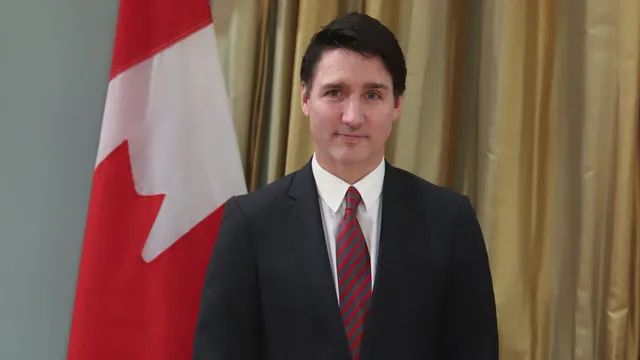
Justin Trudeau steps down as Canadian prime minister amid public outrage
2025-01-06 17:01- Justin Trudeau has announced his resignation as leader of the Liberal Party and prime minister amid declining popularity.
- His announcement follows criticism over economic issues like soaring inflation and housing prices, which have contributed to a dissatisfaction with his administration.
- Trudeau's resignation is expected to lead to a party election for a new leader, impacting the future political landscape of Canada.
Express your sentiment!
Insights
Canada has witnessed significant political turmoil as Prime Minister Justin Trudeau announced his resignation from the leadership of the Liberal Party and as prime minister. This decision comes after nearly a decade of leadership, in which Trudeau's popularity has significantly declined. Recent events, including the resignation of key figures in his government and growing public discontent over economic issues such as soaring inflation and housing prices, have contributed to a declining approval rating for the prime minister. A recent poll indicated that 73 percent of Canadians believed he should resign, including a substantial number of his own Liberal voters. In light of these challenges, Trudeau stated that he would remain in both leadership positions until a replacement is chosen through a party election. In recent months, Trudeau has faced mounting criticism from opposition parties, particularly regarding his administration's handling of the economy and relations with the United States. Tensions reached a peak following the announcement of President-elect Donald Trump's proposed tariffs on Canadian imports, which added pressure on Trudeau's government. This situation was exacerbated by the resignation of Chrystia Freeland, the former deputy prime minister and finance minister, who critiqued Trudeau's leadership and questioned the government's strategy in dealing with the upcoming Trump administration. Historically, Trudeau has been recognized for progressive policies, including legalizing recreational cannabis and apologizing to Indigenous Canadians for historical injustices. However, his administration has struggled with various scandals, including a blackface controversy, which contributed to a decline in public support. A series of confidence votes and internal party unrest has only intensified calls for his resignation, illustrating a coalition of discontent not only from the public but also within his party. As Trudeau prepares to resign, the Liberal Party faces the challenge of selecting a new leader during a turbulent period. The implications of this transition could significantly impact Canada's political landscape as the country gears up for its next federal election, which must take place by October 2025. The Liberal Party will need to strategize effectively to regain confidence from the electorate amid escalating economic pressure and political uncertainty.
Contexts
In a time of political unrest, the leadership of the Canada Liberal Party was as tumultuous as the weather of December. As challenges mounted against Prime Minister Justin Trudeau, many within the party clashed over the future direction. The clamor for a new, radical primary system became the echo of longing for renewal amidst whispers of resignation. Activists rallied around the idea, envisioning a way to harness the passionate voices of everyday members instead of relying solely on traditional delegate votes. The biennial convention took on an air of urgency, a swarm of ambiguity surrounding the leadership that could redefine the party's future. Crowd sentiments divided delegates; some embraced the new primary approach, viewing it as an opportunity for rejuvenation and outreach, while others perceived it as backtracking from prior gains. The atmosphere pulsated with uncertainty; those hoping for a refreshing perspective clashed with long-time party loyalists, fearing dilution of their established values. As the ballots began to take shape, political science professors and analysts speculated the potential fallout of Trudeau's leadership, comparing it to the storied legacy of his father, Pierre Trudeau. Past leadership conventions with their masked secretive negotiations stood as a notable backdrop, echoing through the corridors of political history. Yet, many members reminisce about the time when adopting sweeping changes seemed less daunting. Then came the pivotal moment. On December 2, 2023, the results shifted the trajectory of the Canada Liberal Party, as new leadership emerged amidst the weight of history. In this time of uncertainty and relentless storms, what role would the Liberal Party play, and would it rise to the challenges ahead or falter under its own expectations?